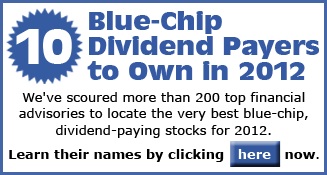by Geoffrey Seiler, editor BullMarket.com
 Recommended List selection Berkshire Hathaway B (BRK.B) released its first-quarter results last Friday night and then held its annual meeting in Omaha on Saturday.
Recommended List selection Berkshire Hathaway B (BRK.B) released its first-quarter results last Friday night and then held its annual meeting in Omaha on Saturday.
Chairman and CEO Warren Buffett and Vice Chairman Charlie Munger held court before roughly 35,000 shareholders and a panel of three Wall Street analysts to fire questions at the two octogenarian leaders of the company.
One topic that did come up repeatedly was the underperformance of Berkshire's own stock and whether Buffett should free up more of the company's unused cash for share repurchases. Berkshire's shares have underperformed the S&P 500 for the past three years.
Berkshire does have a buyback program for the Class B shares but Buffett set strict rules that the shares would only be retired when they are trading for less than 1.1x book value or are "dramatically undervalued."
So far, the company has spent only $67 million on repurchases; Berkshire has more than $38 billion in the bank. As for a dividend, he repeated what he has always said, which is that shareholder would benefit more from Berkshire investing its cash in acquiring new businesses.
Buffet did disclose after some prodding from the analyst panel how he values the operating businesses that are under the Berkshire umbrella. He said that overall he'd pay eight or nine times pre-tax earnings for the operating business.
Turning to the company's results, Berkshire Hathaway delivered a 67% increase in its first-quarter operating profits to $2.66 billion, compared with $1.59 billion in Q1 2011.
The increase was driven by a strong underwriting performance by its insurance businesses and increased contributions from its non-insurance businesses.
The company reported net income of $3.25 billion, or $1,966 per Class A share, which was up from $1.51 billion last year, or $917 per Class A share. Class B shares are worth 1/1,500th of the Class A, so EPS for the Class B was $1.31 per share.
Advertisement

Net income was aided by $351 per Class A share in non-cash gains in the value of Berkshires investments, which reversed a year-earlier loss of -$49 per Class A shares. Book value per share at quarter-end equaled $106,603.86 for the Class A shares, or $71.07 for the Class B.
Berkshire's non-insurance business, which cover everything from candies and milkshakes to utilities and railroads, chipped in nearly $2.0 billion in operating profit, up from $1.56 billion last year.
Looking at the major components of the non-insurance businesses, Burlington Northern reported a 10% increase in revenue to $5.0 billion from $4.5 billion in Q1 2011. Net income increased to $701 million from $607 million.
Mid-American Energy reported a modest increase in revenue to $2.89 billion from $2.88 billion. Net income attributable to Berkshire's nearly 90% ownership interest in the international energy firm grew to $338 million from $301 million in Q1 2011.
In the manufacturing, service and retailing segment, Berkshire's interest in Chicago's Marmon Industries generated $1.78 billion in revenue and $269 million in pre-tax profit, up from $1.67 billion and $222 million, respectively, last year. Marmon operates roughly 150 manufacturing and service businesses in 11 diverse sectors.
The McLane wholesale distribution business saw its profit grow to $102 million from $82 million last year as revenue increased to $8.07 billion from $7.77 billion.
With the exception of bricks, all of its building products businesses and several of its other diverse manufacturing businesses generated higher earnings in 2012 over 2011, somewhat offset by decreased earnings from its apparel businesses like Fruit of the Loom and Russell.
Operationally, Berkshire reported a solid first quarter, but as is normally the case this time of year, the Buffett and Munger Q&A session generated most of the headlines.
Interestingly, Buffett said he's been buying U.S. equities and that we would continue to do so as opportunities come up. He also defended the "Buffett Rule." (We'll have to wait for its quarterly report on portfolio moves for the details on what stocks Buffett has been buying.)
On the operating front, the broad improvement across a variety of industries could be viewed as a good omen for the U.S. economy if the gains can be sustained because Berkshire owns such a wide variety of business.
That's especially true of the businesses tied to housing. In addition, while we normally applaud companies that return cash to shareholders in the form of dividends or buybacks, there are exceptions.
Buffett has never been a proponent of either approach as he likes keep dry powder for big deals, which we think investors understand when they own this stock.
Burlington Northern has certainly been a good acquisition for the company, and the Lubrizol deal looks like a good one as well.
Buffett said the company would continue to grow in the years to come and that a deal larger than its $30 billion acquisition of the Burlington Northern Santa Fe railroad was likely at some point in the future.
It is true that Berkshire's stock has underperformed the market the last couple of years, but Buffett tends to become more popular when the broader market is bearish rather than when it is bullish.
We think the stock is undervalued, trading at just 1.14x book value which is well below the 1.5x it had commanded in the past. We continue to rate the stock a "Buy," with a target of $95.
Learn more about this financial newsletter at Geoffrey Seiler's BullMarket.com.









